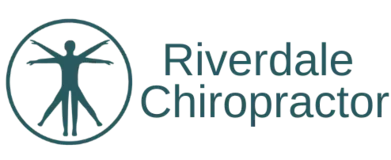Massage Therapy
Click Here To Meet Our Massage Therapy Team
Massage Therapy Today:
These days massage isn't just for feeling good anymore. It has lost the ancient stigma associated with blue light districts. It is a holistic therapy that reduces the heart rate, lowers blood pressure, increases blood circulation and lymph flow, relaxes muscles, improves range of motion, and increases endorphins, the body's natural painkillers.
Therapeutic massage enhances medical/chiropractic treatment and helps people feel less anxious and stressed, relaxed yet more alert. It had been said that, "Massage is to the human body what a tune-up is for a car."
What is massage:
Massage is the manipulation of soft tissue effecting a change in the surrounding tissue and structures. Our bodies and posture are held in balance by the muscular system. In order for you to stand still there are various muscles throughout the body constantly tightening and slackening to maintain the stillness that you desire.
If one or more of your muscles becomes too tight or slack then your posture will be thrown out and your body will deliberately put other muscles out of their normal state of tone to compensate. If this is not corrected it will over a period of time be accepted by your body and you will have a permanent imbalance.
You will become accustomed to this over time and quite probably will not notice that you have a dysfunction until you try to do something which requires a normal full range of movement.
This is where massage therapy comes into its own for if the muscles being worked are too tight they will be relaxed and stretch, however if they are too slack then they will be toned and tightened.
If a joint is too tight causing stiffness then it will be released, or if too slack then it will be tightened, or rather the surrounding tissue that holds it in its proper alignment will be adjusted.
This is the main physical property to massage but it does have a pronounced effect on all the systems of your body, as well as relaxing you mentally and reducing emotional turmoil.
History of Massage
Massage may be the oldest and simplest form of medical care. Egyptian tomb paintings show people being massaged. In Eastern cultures, massage has been practiced continually since ancient times. A Chinese book from 2,700 B.C., The Yellow Emperor's Classic of Internal Medicine, recommends 'breathing exercises, massage of skin and flesh, and exercises of hands and feet" as the appropriate treatment for -complete paralysis, chills, and fever." It was one of the principal method of relieving pain for Greek and Roman physicians. Julius Caesar was said to have been given a daily massage to treat neuralgia. "The Physician Must Be Experienced In Many Things," wrote Hippocrates, the father of Western medicine, in the 5th century B. C., "but assuredly in rubbing.. . for rubbing can bind a joint that is too loose, and loosen a joint that is too rigid."
Ayurveda, the traditional Indian system of medicine, places great emphasis on the therapeutic benefits of massage with aromatic oils and spices. It is practiced very widely in India.
Doctors such as Ambroise Pare, a 16th-century physician to the French court, praised massage as a treatment for various ailments. Swedish massage, the method most familiar to Westerners, was developed in the 19th century by a Swedish doctor, poet, and educator named Per Henrik Ling. His system was based on a study of gymnastics and physiology, and on techniques borrowed from China, Egypt, Greece, and Rome. Physiotherapy, originally based on Ling's methods, was established with the foundation in 1894 of the Society of Trained Masseurs. During World War I patients suffering from nerve injury or shell shock were treated with massage. St. Thomas's Hospital, London, had a department of massage until 1934. However, later breakthroughs in medical technology and pharmacology eclipsed massage as physiotherapists began increasingly to favor electrical instruments over manual methods of stimulating the

